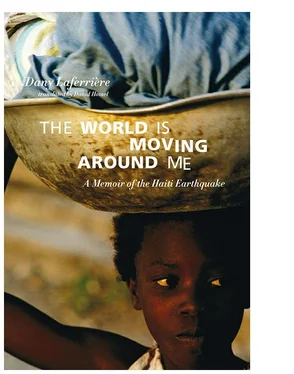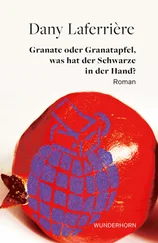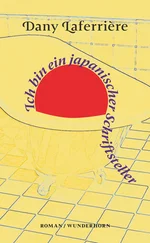The Role of God
The few belongings people had are buried in rubble. The city is on its knees. Help isn’t reaching certain parts of the population. For these people, what they hear on the radio — in other words, politics — doesn’t concern them. They can count only on themselves. And God. They use God to convince themselves that they’re not alone on this earth and that their lives are not just a beadwork of misery and pain. What matters most is their access to God at all times. They’ve understood that they can’t ask too much of him. His spiritual resources may be infinite, but his material ones are limited. They lost their house, but they praise him for sparing their lives. I’m always surprised by what intellectuals say about the role of God among the poor. It has nothing to do with spirituality. It’s like my mother’s chair. It’s better to have it in case a visitor shows up.
A City of Art
If it’s true that we have so many painters that we don’t know what to do with them, we should give them a special place in the rebuilt city. A house is not just a shelter. And a city has to have a soul to be livable. What defines Port-au-Prince on the international scene? The brightly colored tap-taps that carry people from one place to another? Why not consider painting certain neighborhoods? Or turning Port-au-Prince into a city of art where music could play a role too? Haiti should use this truce to change its image. We won’t have a chance like this a second time, if I can put it that way. Let’s show a more relaxed face. Although everyone knows the reasons behind the tension (poverty, dictatorship, insecurity, hurricanes), it puts off visitors. Despite our troubles, our culture is joyful; we need to show it off. First, by separating art from craft. Haitian painting is a major art form. Why don’t cities like Paris (Paris has done it more often than the others), New York, Rome, Montreal, Berlin, Tokyo, Madrid, Dakar, Abidjan, Sao Paulo, and Buenos Aires organize major exhibitions of Haitian art in their national museums? That would create interesting partnerships, and all sides would benefit. Haiti would recover its place among the nations. Its contribution would be artistic — and that’s saying a lot.
Brazil and Haiti
Brazil has three things in common with Haiti: coffee, the love of soccer, and voodoo. They practice a variety of voodoo called candomblé . As for soccer, we hopped onto the Brazilian train a long time ago. Add to that the passion for music (the body fever of Carnival) and the rituals that come from Africa. We worship the Brazilian national soccer team to the point that we cheer for Brazil even when it plays against Haiti. I remember when Pelé came through Port-au-Prince. The city was literally transfixed. I didn’t go to the game, even if I did live close to the stadium. I was surprised to hear three loud cheers that shook the city. I went outside to find out what was going on. A guy was coming up the street, dancing with joy. I asked him how much Haiti was leading Brazil by. He looked at me like I was out of my mind and told me that Brazil had scored only three goals so far out of politeness for the host. In my memory, I can still hear him laughing all the way to the end of the street. At the beginning of the World Cup, every tent flew its Brazilian flag. The warm green and yellow colors made the city look happier somehow. The earthquake was no longer the first subject of conversation in this wounded place.
Writer at Work
When I came in, my nephew was writing on an old computer that he had put together himself. I sat down to watch him. I spotted a notebook close by in which he scribbled down something from time to time. Exactly the way I do. Yet I’d never told him anything about the way I work. Maybe he read it somewhere. Or maybe we have the same method. Writers at work all look the same. Suddenly, he turned to me.
“Are you writing?”
“I don’t know …”
“I saw you.”
“I wasn’t writing.”
We looked at each other a moment.
“Why do you refuse to accept that you were writing? That’s what writers do.”
“I’m not a writer,” he stated in no uncertain terms.
“Why not?”
“I haven’t written a book.”
“A writer is just someone who writes.”
He looked at me like a punch-drunk boxer. Now the issue of craft enters. A long road awaits him. He’ll have to walk it by himself.
A Sunday in Petit-Goâve
I wanted to escape the uproar of Port-au-Prince, and the best time to cross the city of constant turmoil is early on a Sunday morning. I wanted to take that route again, but in an atmosphere different from Aunt Renée’s funeral. See everything with a different point of view. From our house at Delmas 31 to the fragile shacks along the sea in Martissant, with fresh eyes I discovered a Port-au-Prince deep in slumber. I can’t remember the last time I gazed upon the monster at rest. Even the gaudy tap-taps , those swift trucks that carry thousands of workers from the poor neighborhoods to the industrial zones, were hard to come by. A few party-goers were making their way home, crossing paths with elderly ladies going to early morning mass. Young girls with buckets of water on their heads. The district is overpopulated and very poor. All week, in the slums that have grown up around Port-au-Prince, there was only one subject in the air, and that was the unacceptable elimination of Brazil from the World Cup. People must have been emotionally exhausted (there were four deaths after Brazil’s defeat). Once I got on the highway, I recovered that sense of exhilaration I always felt when I left Port-au-Prince for Petit-Goâve after year-end exams. On the road, I saw countless bicycles and little red-and-yellow motorbikes that serve as taxis, carrying girls who stared at me impassively, their expressions an obsession from my younger years. To the left, little houses with shutters painted yellow and blue like in the paintings they sell in front of the hotels. To the right, I glimpsed the sea, turquoise this time of day, behind the cane fields. Long stretches where you don’t see anyone alternated with little markets, crowded even this early in the day. The sharp sunlight caught up with us at the foot of the terrible Tapion Mountain. Since childhood I’ve had this premonition that a truck will slide off the edge of the cliff with me in it. I got out to pick a mango and ate it beneath its tree — an old dream of mine. Then came Petit-Goâve, just on the other side of the mountain. I didn’t recognize the entrance to the town. The new road doesn’t go through the heart of town, which has grown in size. I’ve lost my bearings. I sorted through my memory — so rich in details when it comes to Petit-Goâve — but I couldn’t locate any of these houses. The car turned right, toward the sea. And Petit-Goâve leaped up before my eyes. The same long, white, dusty street still crosses the town. We went past the hospital still standing with its back to the sea and continued to the little square by the marketplace. The new square is more handsome than the one from my childhood, but it doesn’t have the same effect on me. I wish it were more natural, less prettied up. I wanted to see the port. That’s where the adults would gather for an evening stroll when the July heat became unbearable. For teenagers, it was the perfect place for an innocent touch and an exchange of burning looks. When I think that’s all it took to send me to seventh heaven. We went by the church, still clean and white; the religious songs and the noonday bells still live within me. From the church (that exists only in memory) to the elementary school where priests from Brittany looked after my education. The sisters’ school, with its swarm of girls, reminded me of my years of thralldom to Vava. And Killick the teacher’s house — he was the best back on the Petit-Goâve soccer team. We then turned left toward the house that stands at 88 Lamarre. For two decades, I’ve been working to make that address universal: the address of a happy childhood. The big Jubilee Cross around the back helped me recognize it. I first noticed the house across the street where a black dog lived. Today, the house of my childhood belongs to a friend who used to live across the street, but it crouches intact in the thicket of my memory. When I visited it, I clearly heard the voices of my aunts and felt the soothing presence of my grandmother. In the shadows, my dog Marquis brushes against me. I walked through the little Sunday market to the old cemetery on the other side of the bridge. Surrounded by tall grass, at the very back, I found my grandmother’s grave, next to which Aunt Renée is resting. I took a bouquet from another tomb and put it on hers.
Читать дальше












